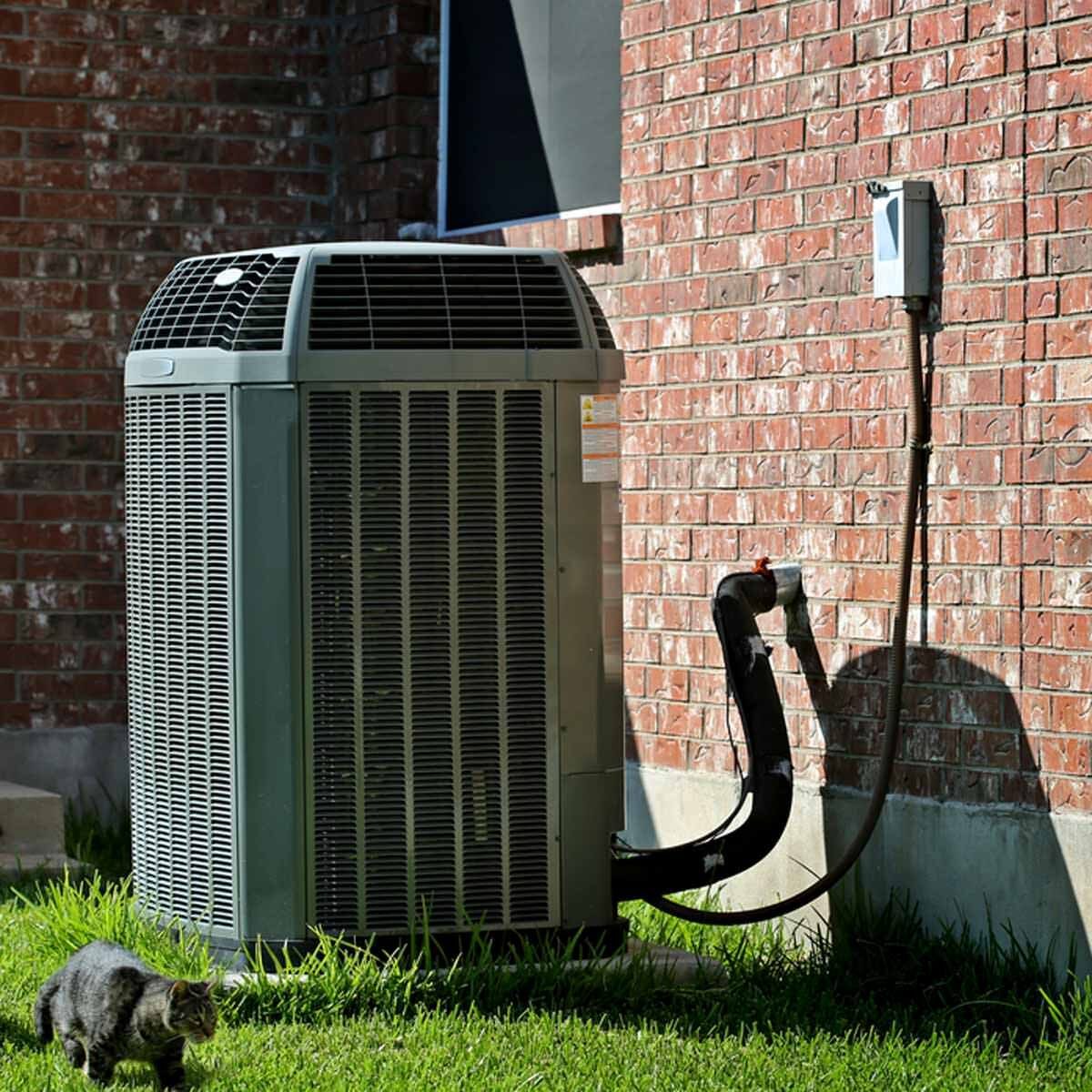You don't have to choose between running the AC and being able to hear yourself think.

What Can You Do About a Noisy Air Conditioner?

When the mercury really starts to climb like it has this summer, it’s nice to be able to retreat into your air conditioned house during the heat of the afternoon. But if your condenser is making a racket outside, you can’t relax while hiding out from high temperatures, especially if it sounds like the air conditioner is about to crash and burn.
Fortunately, you can often repair a noisy air conditioner yourself without having to call an HVAC pro, who’s probably going to be extremely busy this time of year anyway.
Here are a few solutions for a noisy condenser.
On This Page
Check the Outside of the Condenser
If you hear a regular, rhythmic rattle from your air conditioner, the metal part covering the fan might a dent or bend in it. Examine the part. You may be able to smooth out the dent enough to prevent it from making noise. Another thing to check is whether or not any screws are loose (or even missing) on the condenser. Tighten up loose screws or replacing missing ones will help take care of some of the rattling noises the unit is making.
Inspecting the unit for damage and loose parts should be part of your regular maintenance routine. Doing so will help you prevent more serious problems and extend the life of your air conditioner.
Install a Sound Blanket
Newer models have been engineered to reduce the fan noise, but an older model that’s otherwise working just fine can still be rather loud. One way to deal with that is to add a sound blanket.
Usually made with acoustic insulation and a rubber layer, the blanket fits around the compressor to reduce the noice. To install it, unscrew and lift off the top panel. The heavy fan motor is mounted on the panel, so have a helper hold it while you install the air conditioner sound blanket.
The blankets are safe to use, and they can reduce noise coming from the unit by as much as 50 percent.
Remember to shut off all power to the unit before you start working on it. Turn off the thermostat inside the house, switch off the breakers at the main panel and pull out the fuse block at the outside disconnect box.

Build a Sound Fence
Fencing one or all sides of an air conditioner’s outside unit can deflect noise. But experiment first: Prop up plywood around the unit so you can judge how much good a fence will do. If you decide to build a fence, keep it at least 3 ft. from the unit to allow airflow.
You’ll get the best attenuation of sound from a noisy air conditioner by overlapping fence boards instead of leaving gaps between them, but be sure the fencing is far enough away from the condenser to allow for adequate air flow.
Other Air Conditioner Noises
The solutions laid out here will help with a condenser unit that runs loud. However, you may notice other, more specific noises coming from your air conditioner, such as screeching, gurgling or clicking. If you’re hearing noises like that, it could indicate more significant problems, and you should call a professional to take a look at your unit. They’ll be able to tell you whether a specific part needs to be repaired or replaced or if the unit itself needs to be upgraded.
Remember to keep your air conditioner clean too. A condenser covered in dirt and debris won’t work as effectively and can lead to bigger problems.
FAQs
Can a dirty air filter cause my AC to be noisy?
Yes, although it may take some time. A dirty filter restricts air flow, which causes the blower to work harder, and eventually, screws in the blower wheel may loosen or the bearings in the compressor may wear out, resulting in a noisy air conditioner.
What should I do if my AC is making a grinding noise?
Many noises signify minor problems, but not grinding. If you hear that, it usually means engine components in the compressor, perhaps the valves or pistons, are rubbing against the engine housing or something else. That’s a major problem that may indicate the need for a new compressor. Your best bet is to stop using the air conditioner and call an HVAC tech to check it out.


















